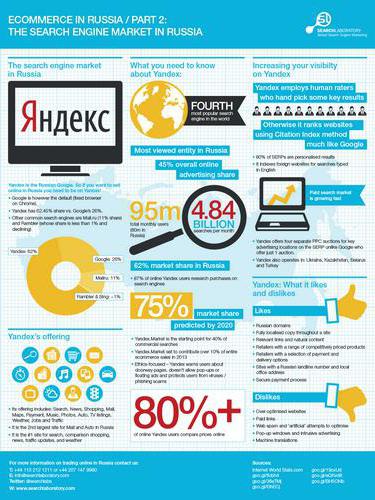In modern market relations, enterprises have to fight for consumers. Advertising is one of the ways to attract customers. Moreover, the legislation does not always keep pace with new means and methods of promoting a product or company on the market. In some cases, excessive detailing of regulatory regulation is impractical. It is enough to define the basic principles. Federal Law "On Advertising"just establishes such provisions regarding the activities of individuals to promote their company and products on the market. 
Good faith
it mandatory advertising requirement. Information is recognized as unfair:
- Containing an incorrect comparison of promoted products with products put into circulation by other manufacturers or sold by other sellers.
- Acting as an act of unfair competition. The relevant provisions are established by antitrust laws.
- An advertisement of goods whose promotion is prohibited in a given place, this way or at this time, if they are presented under the guise of other products whose service mark (trademark) is similar / identical to the point of confusion.
- Discrediting the reputation, honor and dignity of a person, including a competitor.
The nuances of norms
Considering good faith in the promotion of products, it is necessary to pay attention to bringing Federal Law "On Advertising"in accordance with the provisions of the Law governing the protection of competition. As this normative act indicates, any operations of business entities aimed at obtaining any advantages in conducting business activities will be considered unfair. They also recognize actions that are contrary to laws, customs of circulation, and reasonableness requirements. , integrity, justice, causing or capable of harming other enterprises or their reputation. join general advertising requirements, promotion of alcohol-containing products presented under the guise of mineral water, collections of clothing, sweets having a similar external design or a single trademark is considered unscrupulous. In the previous normative act this wording was not used. This allowed many entities to circumvent the restrictions and prohibitions imposed on alcoholic beverages.
Invalid Ads
It is information that does not correspond to reality. Invalid Ads may indicate:
- Advantages of products over goods in circulation manufactured by other manufacturers or sold by other sellers.
- Any product specifications. These include, but are not limited to, information about the composition, nature, date and method of production, consumer quality, purpose, conditions of use, place of origin, shelf life / service, circulation and conformity marks, certificates.

- A complete set and the range, a possibility of acquisition in a specific place within the limits of a certain period.
- Cost of products, payment procedure, discounts, other conditions of purchase.
- Terms of delivery, maintenance, repair, exchange.
- Warranty
- The exclusive rights of products of intellectual labor, as well as means of individualization, which are equated with them.
- Public / official recognition, receiving prizes, medals, diplomas or other awards.
- The rights to use the symbols of international communities / organizations, as well as state symbols.
- Recommendations from legal entities or citizens regarding the promotion object or its approval.
- Test / research results.
- Granting additional rights / benefits to the buyer.
- Actual demand.
- Dates and rules for organizing and conducting lotteries, games, contests and other similar events.
- Volume of production / sales.
- Other conditions, information and circumstances.
It is worth saying that this list was significantly supplemented, since cases of dissemination of false information about holding contests, lotteries, risk-based games, as well as information about sellers and manufacturers that are not true, became more frequent. Law establishing basic advertising requirements, does not contain restrictions on the use of words such as "only", "the most", "best", "only", "absolute" and other similar ones. Previously applicable standards required documented justification for the use of these terms. 
Security
Setting advertising requirements, the legislation does not allow the use of information that prompts the commission of illegal actions. Promotion of an enterprise or product should not lead to cruelty and violence. As part of security, outdoor advertising requirements. In particular, it should not be like road signs or in any other way pose a threat to the normal movement of air, rail, water and road modes of transport. Previous legislation did not establish special advertising requirements regarding its safety. At the same time, rulemakers tried to cover all the perceived risks. Tradvertising fuck were formulated as follows. Information should not lead to aggression, violence, the commission of dangerous acts that could cause harm to citizens or violate environmental standards, cause panic. An example of a “dangerous” advertisement is the video broadcast during the match between the football teams of Japan and Russia in 2004. According to the prosecutor’s office, a multiple screening of an excerpt from the movie “Big Lebowski” in which a man crashed a car using a baseball bat provoked riots among fans.
Relevance of restrictions
Advertising Requirementsaimed at ensuring security comply with the prohibition of abuse of media freedom. It is established in the relevant Law of 1991 No. 2144-1. According to the normative act, mass media cannot be used to commit crimes, disclose information classified as state or other protected secrets, disseminate materials that contain public calls for terrorist activities or that justify terrorism that promote pornography, cruelty, and personality cults. 
Negative impact on citizens
When promoting products, businesses, enterprises and entrepreneurs are required to comply with ethical standards. Advertising Requirements designed to protect citizens who do not use certain goods from a negative attitude towards them. In previous legislation, the relevant requirements were present in article 16. It was dedicated to the promotion of alcohol, tobacco, beer. Besides, advertising requirements contained in article 6. When analyzing the practice of applying the standards, one can name the two most common forms of discrediting entities that do not use promoted products. The first is expressed in providing consumers with additional benefits. For example, when advertising detergents, the seller can use the phrase "Smart housewives choose ...".The second form is a direct appeal to citizens who do not use the product, indicating the shortcomings of persons. For example, when advertising a cosmetic product, it may be indicated that if teenagers do not use it, then they will have acne.
Content
The legislation establishes certain print ad requirements. First of all, they relate to the content of information. So, it is not allowed to use foreign words that can distort the meaning of the information. It is forbidden to indicate that the object is approved by state authorities, local structures or officials. When promoting products, it is not allowed to provide information that the fabric of a human embryo was used in its manufacture. Legal requirements for advertising closely related to moral standards. According to the current legislation, it is forbidden to use profanity, abusive words, abusive and obscene images, expressions and comparisons, including those related to race, gender, profession, nationality, social status, language, age, state, religious symbols, objects, when promoting products cultural and historical heritage, including those included in the UNESCO list. It is worth noting that these restrictions were valid earlier. However, in the past, in practice, there were many problems in proving the facts of the dissemination of unethical information due to the uncertainty of wording and the use of a subjective approach to the analysis of advertising activity in general. 
Data completeness
Current legislation prohibits advertising in which some of the essential information about the product, the conditions for its use or purchase is missing, if in this case the meaning of the information is distorted and the consumer is misled. According to previously applicable standards, such a promotion was considered unscrupulous. Introducing data completeness requirements, the legislator sought to protect consumers. Meanwhile, in practice, to prove that the meaning of the information is distorted, and the consumer is misled is quite difficult. The fact is that many entrepreneurs often use small letters in texts, links to telephones, websites, thus ensuring formal compliance with the rules.
Hidden promotion
The legislation does not allow the use of advertising in radio, audio, video, television and other materials, which impact consumers that are not recognized by them. This requirement is almost fully consistent with Article 10 of the Law that was in force earlier, as well as the regulatory act that regulates the media today. Currently, in administrative and judicial practice, there are no cases on holding entities liable for hidden advertising.
The specifics of promoting licensed activities and products
The state provides for different methods of normative regulation of economic interactions. Among them, compulsory licensing of certain areas of activity, as well as certain goods. The purpose of such regulation is determined by the need to ensure control by the authorities over the safety and appropriate quality of output, the provision of services in vital areas. A license is a permit issued by a competent authority. Today, the most frequently promoted activities are:
- Credit structures.
- Educational institutions.
- Construction companies.
- Transport enterprises.
- Health care facilities.
- Companies engaged in communications.

Should be separately mentioned health service advertising requirements. When promoting them, first of all, all the restrictions and rules mentioned above must be observed.In addition, the advertising information should not contain references to specific examples of getting rid of any diseases, improving the condition when providing a citizen with any service. It is also not allowed to express gratitude to individuals in connection with the manipulations. In the process of promoting medical services, it is not allowed to include in the information assumptions or statements about the presence of potential consumers of a disease or disorder. Another rule is the presence of a warning about possible contraindications, the need to consult a doctor or familiarize yourself with the instructions.
Consumer Protection
It is carried out in accordance with the Federal Law No. 2300-1. As the Law indicates, a consumer may require information on work, a seller, a product, or a manufacturer. The information that is provided to him must be reliable. Otherwise, liability is provided. The information should be communicated to consumers in an accessible and visual form in Russian, and at the discretion of the manufacturer, in the official language of the region or the native language of the people of the Russian Federation. As Article 10 of the Law points out, potential customers should receive timely information that ensures the choice of goods (work). The information includes data on:
- The name of the technical regulation or other designation provided by law to confirm the conformity of the goods.
- The main consumer qualities. For food, the composition, including food additives that were used in the manufacture, components obtained using GMOs is indicated. Information on consumer properties provides data on nutritional value, storage and use conditions, purpose, methods of cooking, place and date of production and packaging / packaging. There must be a list of contraindications, in the presence of which the use / use of the product is not allowed.
- Cost (in rubles), terms of acquisition.
- Warranty period (if provided).
- Conditions and rules for efficient and safe operation.
- Shelf life / service, consumer actions upon expiration.
If the product was previously in use or has been repaired, this information is also communicated to the consumer. 
Conclusion
The current Law governing advertising activities does not establish a requirement for the recognition of information about a product or work. The articles that are dedicated to the promotion of products or activities, television and radio programs, indicate the prior notification that the relevant material will be shown. It is worth saying that the general requirements for advertising have now become more detailed and logical. At the same time, many rules are somewhat abstract in nature. However, as noted by experts, the Law does not contain any contradictions that have previously occurred between its provisions and the norms of other federal laws. Analysts also draw attention to the fact that some articles of the previous document were canceled due to the inappropriateness or inefficiency of their use. Due to the emerging tense situation in the world, special emphasis is placed on ensuring the safety of the population in the provision of advertising services. Legislators paid special attention to the prevention of road accidents, and the reduction of risks when using water, air, and railway transport.